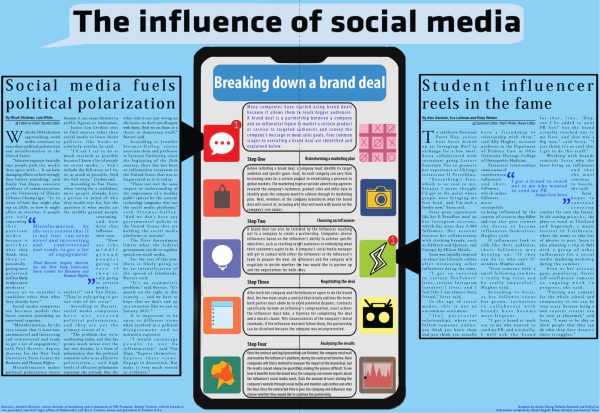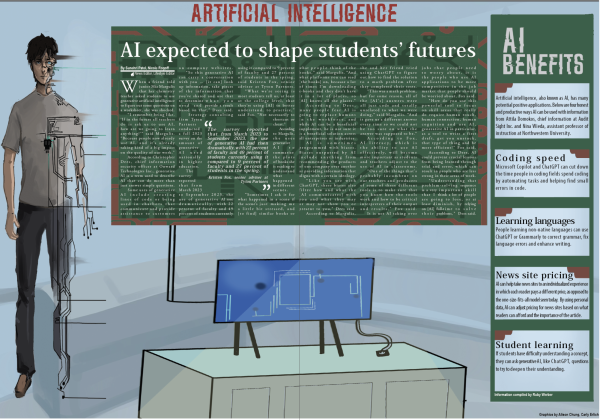Forming warm bonds on cold ice
Sharp blades flash against ice, trailing swooping lines behind them as skaters glide across the rink. This is a familiar scene for senior Nicole Helinski, who has been ice skating since she was 5 years old. In addition to practicing on her own, Helinski spends a majority of her free time teaching kids how to skate at the Northbrook Sports Center.
Despite all the time Helinski spends at the rink, she said teaching ice skating does not interfere with school as much as her skating practices do.
“I’ve been [teaching skating] for a couple years now, so I’ve gotten used to [managing my time],” Helinski said.
According to Helinski, she started to teach skating as a student teacher in eighth grade and was promoted to an official teacher at the end of her sophomore year once she filled the 160-hour requirement. Student teaching at the rink is a volunteer position rather than a paid job.
Helinski gets paid every two weeks and said she tries to save her earnings. She gets paid $9 to $15 for 40 minutes of teaching group lessons and $25 for 30 minutes of private lessons, and said she thinks the pay is reasonable.
Junior Chloe Klein, who also teaches ice skating at the Northbrook Sports Center, said she feels like she does get paid enough for her work.
“[I’m happy for] the fact that I even have a job and [am] making money in the first place as a high schooler,” Klein said.
Klein said she loves her job despite certain difficulties. When she had to teach a 3-year-old girl who only spoke Russian, Klein used body language rather than verbal instruction, pointing to her own feet to show the girl what to do.
“The nice thing about [teaching] skating is that there are different ways of communicating,” said Klein. “I think it’s great that we can give [everyone] an opportunity to learn.”
Helinski said there are many positive aspects to her work such as the gratification she feels when her students move up to a higher skating level.
“You sort of build a bond with your kids,” said Helinski. “Outside of class, they’ll be so happy to see you. They’ll run up and hug you [and] give you nicknames.”




